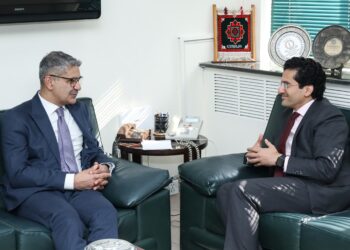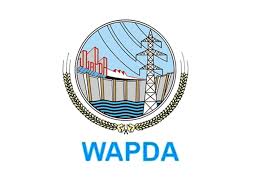ISLAMABAD: The All Pakistan Textile Mills Association (APTMA) has called for the reclassification of Combined Heat and Power (CHP) units utilizing waste heat recovery for process use under the industrial gas tariff category. The association has also offered to propose credible, immediate measures to optimize gas usage and strengthen the competitiveness of textile and apparel exporters—particularly composite and value-added units.
This request was made in a letter to Petroleum Minister Ali Pervaiz Malik, who also chairs the Committee on Structural Reforms in the Petroleum Sector. The committee has been tasked with reviewing the direction of Pakistan’s gas sector and recommending reforms to address the growing circular debt burden.
APTMA argued that the Grid Transition Levy, currently applied to all captive users—whether single-cycle or CHP generation—has disproportionately penalized the most efficient, export-oriented industrial units.
“We also have reservations regarding the calculation methodology of the levy, which appears to deviate from what is prescribed by law,” the association noted in the letter, enclosing a detailed note on the issue for the minister’s consideration.
“These units invested heavily in high-efficiency CHP systems to reduce energy costs and emissions, and their entire production eco-system is based around CHP generation. Not only are the huge capital outlays are going to waste, but the prohibitive gas prices have also significantly hindered their export competitiveness,” said Shahid Sattar, Secretary General APTMA in the letter.
APTMA is of the view that punitive gas tariffs and levies have rendered large textile and composite units unable to operate their CHP facilities, forcing a shift to an unreliable and high-cost grid (12 cents/kWh compared to 5-9 cents/kWh in competing countries), and undermining their export viability. In competing countries like India and Bangladesh, there are no restrictions on captive power generation. Manufacturers utilize combined heat and power generation with gas/RLNG supplied at $10-12/MMBtu compared to $15+/MMBtu in Pakistan. Units shifting to the grid are also forced to import new equipment (incl. boilers, chillers, biomass-fired power plants), valuing at over $100 million, under the current policy, and utilize gas boilers, suppled gas at Rs. 2,300/MMBtu, for heat generation for process requirements.
These units also face frequent grid instability in the form of outages, voltage fluctuations, and other disruptions. Chronic instability leads to costly operational disruptions and damage to equipment, where a single outage can cause a loss of over Rs. 3 million as the entire production cycle and material go to waste. In June 2025, for example, several mills under HESCO experienced repeated power tripping and voltage fluctuations which caused feeders and electrical controllers to burn out, damaging production equipment Such issues are widespread across DISCOs and have become more prevalent after large industrial loads, previously served by captive, have shifted to the grid. Disruption reports from a textile mill under LESCO are also enclosed in this regard.
CHP facilities are the most efficient use of scarce gas resources, simultaneously generating electricity and useful heat from the same gas and achieving thermal and electrical efficiencies of 65-85%. This is in stark contrast to 52% efficiency of RLNG government power plants, further weighed down by technical and commercial losses of the grid. The blanket penalization of captive users is thus severely eroding the competitive edge of some of Pakistan’s largest export houses who rely on CHP facilities for efficient and cost-competitive production. The current policy direction is also not in accordance with the original decision of the Cabinet Committee on Energy (CCoE) in 2021, which encouraged the continued operation of captive CHP plants, conditional upon third-party energy audits to verify their performance. Meanwhile, textile exports are stagnant at $18 billion, and net exports declined from $13.6 billion in FY24 to $14.0 billion in FY25
APTMA is of the view that export-led growth is essential to convert ongoing macroeconomic stabilization into sustainable economic growth, and access to energy at globally competitive prices is an essential prerequisite. Moreover, with global buyers prioritizing low-emission sourcing and the EU CBAM on the horizon, it is imperative that the industry adopt clean and efficient energy solutions.
CHP generation, integrated with renewable sources such as solar, offers a viable path to achieving low emissions-based production while maintaining competitiveness. Considering these factors, we urge the Committee to recommend reclassification of CHP units utilizing waste heat recovery for process use under the industrial gas tariff category. This reclassification should be accompanied by the following safeguards to ensure technical rigor and transparency: Minimum energy utilization rate (total thermal and electrical efficiency) benchmark of 60%, as set out by the CCoE; and Annual certification and audit by an independent third-party auditor.
The gas tariff for industrial process use may accordingly be set at the OGRA notified RLNG price, without any government subsidy, provided it is ring-fenced and unburdened by cross subsidies, excessive UFG allowances, and unrelated charges. In this regard, CHP facilities in the textile sector are ready to offtake 250 MMCF/d of RLNG, equivalent to 30 cargoes. This is a pragmatic solution that will stimulate local demand for RLNG and enable full cost-recovery. This solution is supported by various independent evaluations (enclosed). For instance, the KPMG Gas Supply Chain Sustainability Report (2024) identifies CHP users as the most sustainable demand segment, offering bankability, low system losses, and year-round baseload offtake. Wood Mackenzie’s LNG Market Report (May 2025) reinforces the stabilizing role of industrial users in absorbing RLNG. The Pakistan Integrated Energy Study 2025 further supports the importance of retaining industrial gas demand to ensure supply chain efficiency and reduce overall system stress. The KPMG 2017 UFG study for OGRA further highlights that a high bulk-to-retail ratio is critical to curbing UFG, as bulk captive consumers pose negligible risk of leakage, theft, and metering error compared to fragmented retail networks.
Aligning gas pricing and access policies with economic efficiency and value addition is not only urgent but essential. We stand ready to furnish any additional data, analysis, or clarifications that the Committee may require in its deliberations and look forward to positive consideration of our proposal,” APTMA added. Ends
Canadian Envoy meets Petroleum Minister
ISLAMABAD : Federal Minister for Petroleum Ali Pervaiz Malik held a meeting with the High Commissioner of Canada to Pakistan,...
Read more














